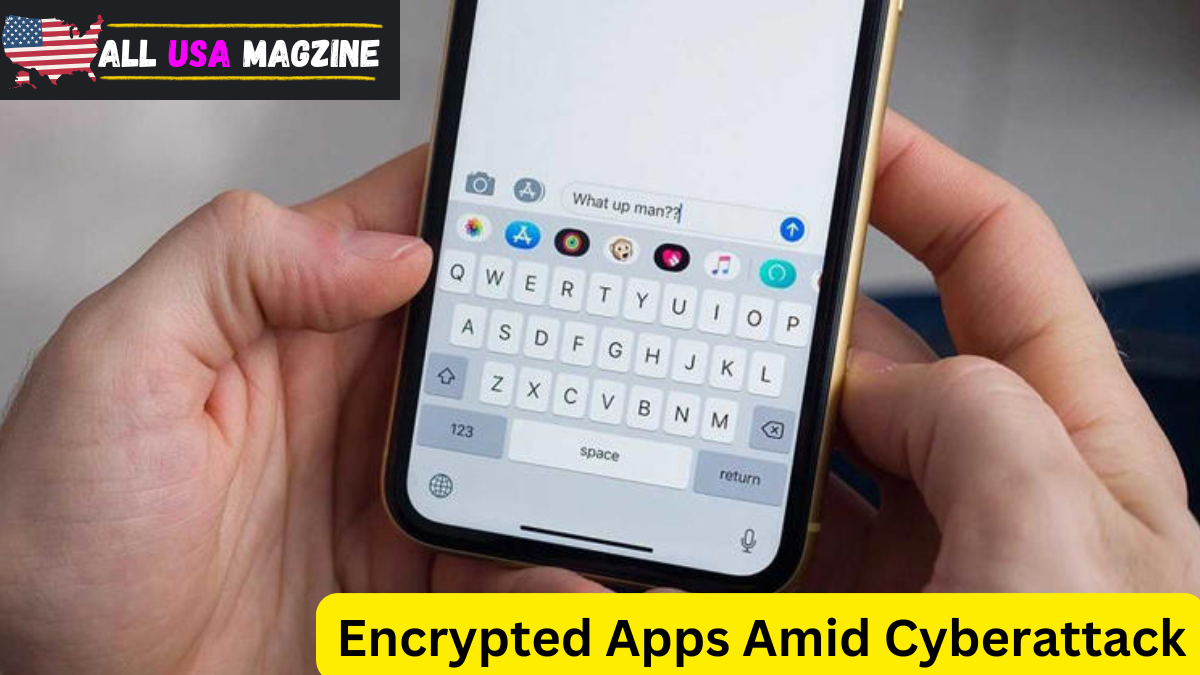In the ever-evolving world of cybersecurity, the increasing number of cyberattacks has made privacy a top concern for individuals and businesses alike. As hackers find more sophisticated methods to infiltrate networks, steal data, and exploit vulnerabilities, the demand for encrypted apps has surged. These apps offer a shield of security by transforming data into unreadable codes, preventing unauthorized access. As cyberattacks continue to rise globally, encrypted apps have become essential tools in the fight to protect sensitive information.
The surge in cyberattacks, both in scale and sophistication, has highlighted the growing importance of encryption in the digital realm. From identity theft to corporate espionage, malicious actors exploit vulnerabilities to gain access to personal, Encrypted Apps Amid Cyberattack financial, and confidential data. Whether it’s a massive data breach affecting millions or a targeted attack on an individual’s private information, the consequences of these incidents are severe, underscoring the importance of using encrypted apps for secure communication and data storage.
The Role of Encrypted Apps
Encrypted apps play a pivotal role in safeguarding digital privacy. At their core, encryption is a process that transforms readable data into an encoded version that can only be decoded by authorized parties with the appropriate decryption key. This process ensures that even if attackers manage to intercept the data during transmission, they won’t be able to make sense of it. Encrypted apps utilize various cryptographic techniques, including end-to-end encryption, which ensures that data is encrypted at the sender’s end and can only be decrypted by the recipient.
The significance of encrypted apps lies in their ability to secure communication channels. Popular messaging apps like WhatsApp, Signal, and Telegram have incorporated robust encryption technologies to protect users’ conversations from eavesdropping. By implementing end-to-end encryption, these apps ensure that even if a hacker manages to intercept the data, it remains incomprehensible. This encryption process gives users the peace of mind that their personal messages, photos, and other sensitive information are protected from prying eyes.
Encryption is also critical for the protection of stored data. Many encrypted apps allow users to store files, photos, and documents securely, using strong encryption protocols. Whether it’s cloud storage services like Google Drive or Dropbox, or more specialized apps, such as those used for storing passwords and sensitive business files, encryption ensures that even in the event of a security breach, attackers cannot easily access this data. In a world where digital files are just as valuable, if not more, than physical assets, encrypted apps are crucial in keeping this information safe from theft.
Rising Threat of Cyberattacks
Cyberattacks have become more frequent, complex, and damaging in recent years. High-profile incidents, such as data breaches involving major corporations, government agencies, or healthcare organizations, demonstrate just how vulnerable our digital information can be. Cybercriminals have increasingly adopted advanced tactics, including phishing, malware, ransomware, and denial-of-service attacks, to exploit weaknesses in digital infrastructures.
One of the most troubling aspects of cyberattacks is their growing sophistication. Hackers often deploy AI-powered tools to identify vulnerabilities or use social engineering techniques to manipulate individuals into revealing private information. This has made it increasingly difficult for organizations and individuals to stay ahead of these threats. The rise of these tactics has also led to an increase in ransomware attacks, where cybercriminals encrypt victims’ data and demand payment in exchange for the decryption key. This threat has caused companies, including healthcare organizations, to invest heavily in encryption technologies to safeguard their critical information.
The frequency and complexity of these attacks have made encrypted apps a necessity for securing personal and corporate data. The encryption used in these apps provides an extra layer of defense, ensuring that even if attackers manage to infiltrate a network, the sensitive data remains protected. Without encryption, any data that is intercepted can be easily read and exploited by malicious actors.
Why Encryption is More Important Than Ever
With the rise of cybercrime, encryption has become more important than ever. It is no longer just a tool for those working in tech industries or handling classified information. As more of our personal lives and business operations move online, encryption has become a universal safeguard. From sending sensitive emails to conducting financial transactions, encryption plays a fundamental role in ensuring the privacy of digital interactions.
In addition to preventing unauthorized access, encryption also helps build trust between users and service providers. When individuals use apps that feature strong encryption, they are more likely to feel confident about sharing personal information, knowing that it will not be exposed to hackers. This trust is crucial, especially for businesses that rely on customer data to operate. In industries such as healthcare, finance, and e-commerce, where privacy is paramount, encrypted apps offer a secure environment for both users and providers to exchange sensitive information without fear of interception.
Moreover, encryption is not just about protecting data from external threats. It also prevents unauthorized access from insiders, such as employees or contractors who may not have legitimate reasons to view certain information. In the corporate world, data breaches often occur from within an organization, whether intentionally or unintentionally. By ensuring that all sensitive data is encrypted, businesses can minimize the risk of internal breaches and ensure compliance with data protection regulations.
Encryption and Legal Considerations
The increasing reliance on encrypted apps has also prompted discussions about the legal implications of encryption, especially in relation to law enforcement and national security. Governments have raised concerns about encrypted communication platforms being used by criminals to evade surveillance and disrupt investigations. In some countries, lawmakers have called for the creation of backdoors in encrypted apps, allowing authorities to access encrypted data when necessary for national security or criminal investigations.
However, this proposal has sparked significant debate, with privacy advocates warning that such backdoors could undermine Encrypted Apps Amid Cyberattack the integrity of encryption systems. The introduction of backdoors could create vulnerabilities that hackers could exploit, ultimately making encrypted apps less secure for everyone. Privacy advocates argue that weakening encryption in the name of security could have disastrous consequences, leaving individuals and businesses exposed to cyberattacks.
The Future of Encrypted Apps in the Face of Cyberattacks
As the threat landscape continues to evolve, encrypted apps will play an increasingly vital role in protecting our digital lives. Cyberattacks show no signs of slowing down, and the demand for robust encryption technology will only grow. In response to these threats, app developers are continually improving encryption algorithms and creating more user-friendly applications.













